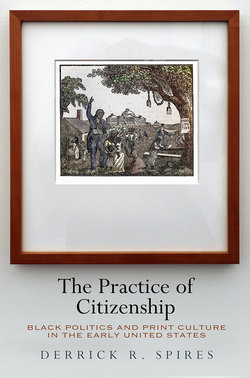The Practice of Citizenship

Реклама. ООО «ЛитРес», ИНН: 7719571260.
Оглавление
Derrick R. Spires. The Practice of Citizenship
Отрывок из книги
The Practice of Citizenship
Black Politics and Print Culture in the Early United States
.....
Negroes are inhabitants, but not citizens. Citizenship confers a right of voting at elections, and many other privileges not enjoyed by those who are no more than inhabitants. The precise difference may be thus stated: The citizen of a free state is so united to it as to possess an individual’s proportion of the common sovereignty; but he who is no more than an inhabitant, or resident, has no farther connection with the state in which he resides, than such as gives him security for his person and property, agreeably to fixed laws, without any participation in its government.78
Ramsay builds on a generally understood connection between citizenship and the specific set of rights and social practices associated with sovereignty and collective governance: citizens were sovereign, voting was a sign of sovereignty, and, therefore, anyone who voted was implicitly a U.S. citizen. But he does so in a way that fixes the range of people who could conceivably perform these practices, suggesting that “Negroes” (along with women, children, and American Indians) were and could only be inhabitants without a share in collective sovereignty. The fact that at the time Ramsay was writing, free black people (“Negroes”) could and were legally voting in every state except Georgia and his own South Carolina, and so were in fact citizens by Ramsay’s own definition, was less important in practice than the conventional wisdom that black people, a priori, were not “original citizens” and were, in fact, the negative against which citizenship gained clarity.79 Being “Negro,” free or otherwise from Ramsay’s perspective, precluded them from being part of the original contract, so citizenship was something they would have to be given with the consent of and always contingent on white sovereigns’ sufferance.
.....